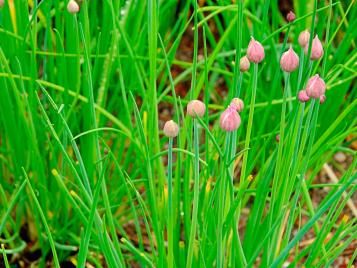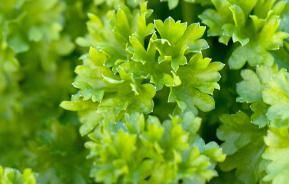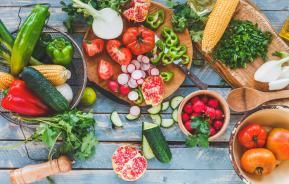Chives are a low maintenance, easy to grow perennial herb, grown for their onion-scented tasting leaves. These are a delicious addition to salads, and can be added to many other savoury dishes.
Their taste is milder than onions, so they are the perfect choice for soups and savoury dishes – where their more subtle flavour is needed. Although mainly grown for their leaves, chive plants also produce highly attractive pinky-purple flowers. These are also edible and are an attractive salad garnish. They also attract bees and butterflies.
Because chives are compact, they are ideal for edging paths and borders, as well as growing in mixed borders, vegetable gardens, herb gardens and in containers.
How to grow chives
Cultivation
Chives will grow perfectly well in a position in full sun or in partial shade. They grow best in a fertile, moist but well-drained soil. Dig in plenty of organic matter – such as garden compost, well-rotted manure or other soil improver – especially in very well-drained sandy soils to hold moisture. Add grit or sharp sand to heavy clay soils to improve drainage if needed.
Chives varieties
The usual chives grown as a herb, is the straight species, Allium schoenoprasum. You may also find Staroand Fine Leaved, which have a milder flavour, and Forescate, with a slight garlic flavour and pale pink flowers.

Sowing chives
You can sow chives seeds thinly outdoors in spring where you want them to grow. Prepare the soil well with added compost or other soil improver and rake to a fine tilth before sowing. Thin out the young plants to 23-30cm (9-12in) apart when large enough to handle.
Chives can be sown indoors from March to June in pots or cell or plug trays filled with seed sowing compost at a temperature of 18-21C (65-70F). Lightly cover the seed with more compost and keep moist. When seedlings are large enough to handle, transplant into 7.5-10cm (3-4in) pots in bunches of 4-6 seedlings per pot. Grow on the seedlings in cooler conditions of around 10C (50F) and plant outside when the last frosts are over, after hardening off – gradually acclimatising them to outdoor conditions – for 10-14 days.
Planting chives
You can buy young chive plants from garden centres, which can be planted outside any time of year.
Dig over the planting area, incorporating some organic matter – such as compost or leafmould if the soil is heavy clay. Dig a good sized hole big enough to easily accommodate the rootball.
Place the rootball in the planting hole and adjust the planting depth so that the crown of leaves is at soil level.
Mix in more organic matter with the excavated soil and fill in the planting hole. Apply a general granular plant food over the soil around the plants and water in well.
Or grow them indoors on a brightly lit windowsill to have fresh leaves readily to hand.
How to care for chives
Chives are very easy to look after and need minimal maintenance.
Keep the soil moist by watering regularly during prolonged dry periods in summer.
Feed with a general granular plant food each spring.
Plants may become congested over time and need rejuvenating every 3 to 5 years. Carefully lift, divide the plant into smaller portions and replant in well-prepared soil in spring.
To keep the plants productive and with the best-flavoured leaves, remove flowers as they form or cut them when young for brightening up salads.
When chives die back in late autumn, clear away all dead leaves and any other debris.
Harvesting chives
Harvest leaves as needed with scissors, cutting them back close to the base of the plant. The more regularly they’re cut, the more new leaves they will produce.
Chives are best used fresh, as soon as they are cut. They can be frozen by cutting them up and packing into ice cube trays with water.
| Flowering season(s) | Summer |
|---|---|
| Foliage season(s) | Spring, Summer, Autumn |
| Sunlight | Partial shade, Full sun |
| Soil type | Chalky, Clay, Loamy, Sandy |
| Soil pH | Neutral |
| Soil moisture | Moist but well-drained |
| Ultimate height | 40cm (16in) |
| Ultimate spread | 30cm (12in) |
| Time to ultimate height | 6-9 months |








